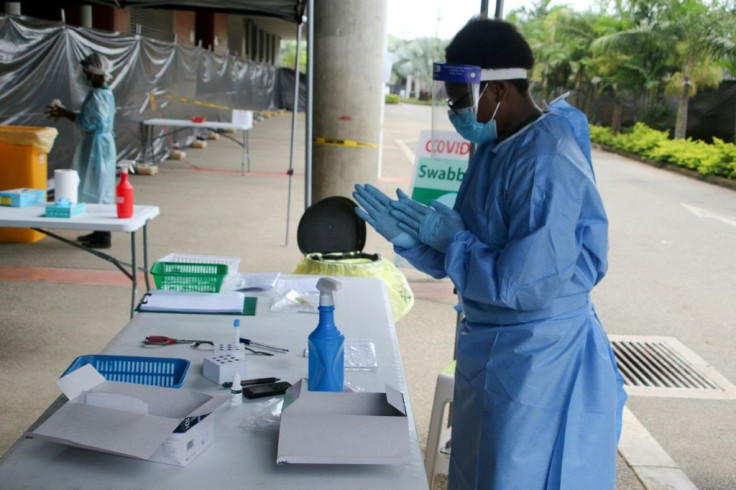B.1.1.7 COVID-19 Variant Spreads Across Entire US: 'The Virus Is Not Done With Us'
The B.1.1.7 COVID-19 variant has now been found in all 50 states, and experts warn vaccinations won’t happen fast enough to prevent another surge of the virus.
Public health officials say that despite the U.S.’s comparatively successful vaccination program, the massive spread of variants paired with the millions of Americans still unprotected mean avoiding another infection spike is likely impossible, CNN reports.
B.1.1.7 was first documented in the U.K. Initially thought only to be more contagious, the variant is now understood to be both highly infectious and more lethal than standard COVID-19.
Public health officials have been warning Americans for months that it’s too early to reopen and loosen restrictions. Doing away with lockdowns before most of the population is vaccinated threatens to actively undo progress on inoculations, spreading variants resistant to current vaccines.
B.1.1.7 lacks that trait, but its high infection rate and lethality make it a major public health threat.
"America appears to be done with the pandemic," Dr. Michael Osterholm, director for the Center for Infectious Disease Research and Policy for the University of Minnesota, said Monday. "The virus is not done with us."

Even though current vaccines are effective against B.1.1.7, vaccination numbers just aren’t high enough to prevent an outbreak. About 40% of the population has received at least one shot but only 15% are currently fully inoculated.
"We are not going to have enough vaccines, the way we are going, into the arms of enough Americans over the course of the next six to 10 weeks with this surge that we are going to stop it," Osterholm told CNN. "It's just simply not going to happen."
In an interview with NBC, Osterholm warned that variants bring more to the table than just higher lethality and infection rates. B.1.1.7 appears to infect children more effectively, making schools a potential vector.
“This B117 variant is a brand new ballgame,” he said. “We're now seeing the other aspect of this B117 variant that hasn't been talked much about, and that is the fact that it infects kids very readily. These kids now are really major challenges in terms of how they transmit.”
© Copyright IBTimes 2025. All rights reserved.





















